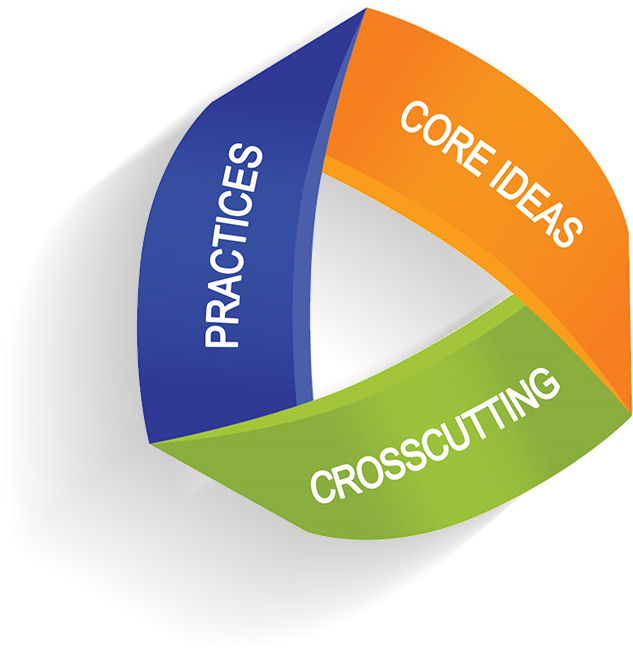Science
Page Navigation
- Science Home
- About Us
- Assessment Resources
- NGSS Resources
- Early Education
-
Elementary Science
- The Science Standards: The Next Generation Science Standards (NGSS)
- Elementary Science Curricula
- Assessments
- Elementary Science PDs
- Resources
- About Elementary Science
- Kindergarten
- Grade 1
- Grade 2
- Grade 3
- Grade 4
- Grade 5
- LAUSD Elementary Engineering
- Engineering Resources
- Elementary Test
- Pictures and Videos
- Middle School (6th-8th)
- High School (9th - 12th)
- Granada Hills Science Materials Center
- Science Material Check Out
- Families-Community
- Black History Month Resources
- Science Professional Development
- Presentations
- Division of Instruction Home
- Contact Us
- Los Angeles Unified School District
- Elementary Science
-


The NGSS logo is a registered trademark of Achieve. Neither Achieve nor the lead states and partners that developed
the Next Generation Science Standards was involved in the production of, and does not endorse, this product.

The Next Generation Science Standards (NGSS) are a set of K–12 science content standards. These standards are designed to provide students with a deep understanding of science through hands-on learning, integrating science concepts with other STEM subjects, and building knowledge sequentially across grade levels1,2.
The NGSS outlines the desired knowledge and skills that students should acquire by the end of their instruction. These standards include Performance Expectations (PEs), which serve as criteria for assessing a student’s understanding and competence. To achieve these benchmarks, students actively participate in three key dimensions of science:

- Science & Engineering Practices (SEP): Students apply scientific methods and engineering techniques to investigate phenomena and solve problems. (What students do)
- Disciplinary Core Ideas (DCI): Students delve into fundamental concepts specific to various scientific disciplines. (What students know)
- Crosscutting Concepts (DCI): Students explore overarching principles that connect different areas of science. (How students think)
By integrating these dimensions, students can effectively explain natural phenomena or devise innovative solutions.
For parents of elementary children, it’s important to know that NGSS focuses on active learning. Instead of just learning about science from textbooks, NGSS encourages students to “do” science through experiments, projects, and real-world applications3. This approach helps children develop critical thinking and problem-solving skills, which are valuable in any discipline.
The NGSS also differs from traditional science education by emphasizing performance over rote knowledge. This means students are assessed on their ability to apply what they’ve learned, rather than just recalling facts2. It’s a more engaging and effective way to learn science that prepares students for future challenges.


The California Science Framework serves as a crucial guide for educators, parents, and publishers in implementing science education standards across the state. Here are the key points about the framework:
-
Adoption Date: The State Board of Education officially adopted the Science Framework on November 3, 201612. This comprehensive document provides essential guidance for science education in California.
-
Alignment with NGSS: The framework was revised to align with the Next Generation Science Standards (NGSS), which emphasize inquiry-based learning, cross-cutting concepts, and scientific practices. These standards aim to foster critical thinking and scientific literacy among students.
-
Content and Support: The framework covers a wide range of topics and instructional strategies. It offers valuable content and support for teachers, administrators, and parents/guardians. The executive summary highlights essential information from the framework1.
-
Instructional Shifts: Brochures for parents/guardians provide an overview of major instructional shifts introduced by the framework. These shifts are designed to enhance science education at different grade levels1:
-
Accessibility: The 2016 Science Framework has been designed to be accessible to assistive technologies commonly used by individuals with disabilities. It complies with federal Section 508 of the Rehabilitation Act of 1973 (as amended)3.
In summary, the California Science Framework plays a significant role in shaping science education and fostering scientific curiosity among students across the state.

Amplify Science
FOSS NextGen
 Links:
Links:- The California Next Generation Science Standards Web page is online at www.cde.ca.gov/pd/ca/sc/ngssstandards.asp
- The 2016 Science Framework for California Public Schools is available online at www.cde.ca.gov/ci/sc/cf/.
- The LAUSD Curriculum Maps is available online at https://www.lausd.net/cdg/CurriculumMaps_Elementary_V2/story_html5.html.


